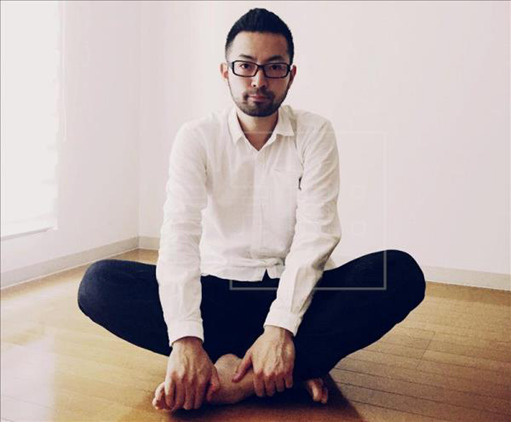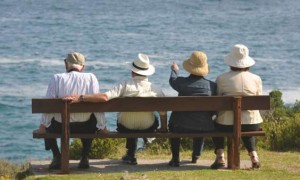导读:日本越来越多人选择远离物质主义,拥抱极简主义的生活方式,佐佐文木雄就是这样的一位实践者和倡导者。

In Japanese society, where consumerism has become almost a national obsession, an increasing number of people are opting away from materialism and embracing a minimalist lifestyle, which they claim provides them with enormous freedom.
在消费主义几乎成为国民强迫症的日本社会,越来越多人选择远离物质主义,拥抱极简主义的生活方式,声称这令他们获得了极大的自由。
Fumio Sasaki has just 20 items of clothing in his closet, with an electric toothbrush and a vacuum cleaner among the possessions in his tiny apartment.
佐佐木文雄的衣橱里只有20件衣物,在他极小的公寓里,还有一把电动牙刷和一个吸尘器。
His apartment, measuring 20 sq. meters (215 sq. feet), has no trace of everyday things, such as chairs, a desk or even a bed.
他的20平米的公寓,没有椅子、桌子,甚至没有床。
"I don’t need them. I have the essentials," he told EFE.
“我不需要这些。我已经有了必需品,”他告诉EFE。
Two years ago, Fumio began practicing a life philosophy that calls on people to do away with material possessions and get richer through their experiences, a lifestyle that is attracting an increasing number of people in Japan.
两年前,佐佐木文雄开始实践一种生活哲学:他号召人们远离物质财产,通过生活经历而丰富自己,这种生活方式正在吸引着越来越多的日本人。
Books, clothing and furniture have disappeared from his house. At the age of 36, he does not need to worry about arranging his things in order, or comparing his possessions to those of others.
书籍、衣物和家具都从他的家里消失了。36岁的他不需要考虑如何整理他的物品,或者把自己的所有物和别人的作比较。
"I was deeply affected by the freedom this lifestyle offers you," the publishing house employee in Tokyo, one of the world’s most fast-paced cities, said.
“我受到这种生活方式所赋予的自由很深的影响,”在东京这个世界上节奏最快的城市的出版社工作的佐佐木文雄说。
"There is a certain freedom when all you need to put are 15 things in your backpack," he said, referring to the "extreme minimalism" of American Andrew Hyde, who one day decided to sell all his possessions (except 15 objects) and tour 42 countries.
“当你的背包只需要15件物品的时候,你随之获得了一种自由,”他指的是美国的安德鲁·海德提出的“极致极简主义”,有一天,他决定卖掉自己所有的财产(除了15件物品)并巡游42个国家。
Motivated by Hyde’s ideas, Fumio has a backpack in which he carries a MacBook Air, Wi-Fi cell phone, Kindle e-reader, a book and a battery charger, as well as socks and some underwear.
受到海德思想的触动,佐佐文木雄的背包里携带着一个MacBook Air,Wi-Fi手机,Kindle电子书阅读器,一本书和一个充电宝,还有袜子和内裤。
"With just this many things, I can work anywhere, I have sufficient entertainment and I can travel any time I want," he said.
“拥有这些东西,我可以在任何地方工作,有充足的娱乐,想何时旅游就何时旅游,”他说。
While Fumio’s approach to minimalism borders on extreme austerity, he says that each person has his own idea of minimalism and "it is not just about having few things in your house, it is about feeling that what you have is absolutely essential for you."
虽然佐佐文木雄的极简主义临近了简朴的极限,他说每个人都对极简主义有自己的理解,而且“这不是说你的家里有多么少的物品,而是一种感觉,你拥有了对你来说完全基本的东西。”
Fumio has written a book on his philosophy of life, titled "For Us Material Things Are No Longer Necessary," which has already sold more than 150,000 copies in Japan.
佐佐文木雄写了一本关于其生活哲学的书,名为《对我们而言,物质已不再必需》,这本书在日本卖了超过15万册。







